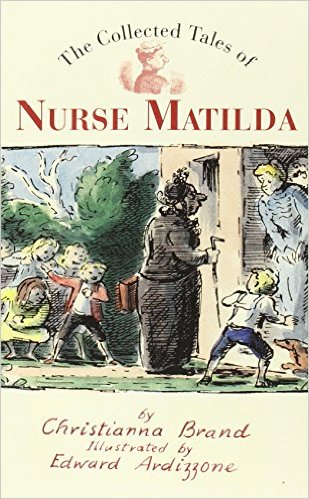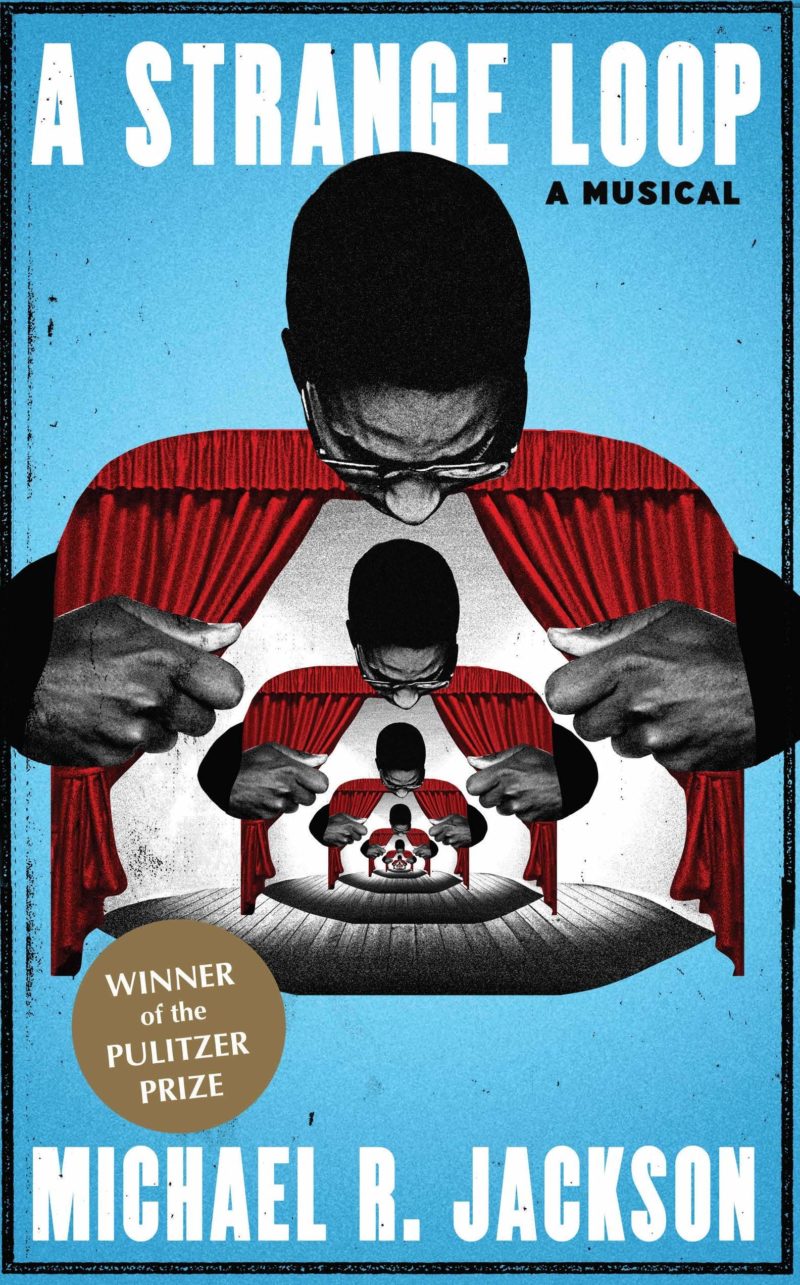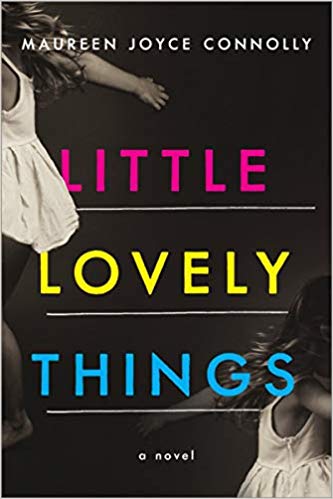Nurse Matilda
Nurse Matilda Goes to Town
Nurse Matilda Goes to Hospital
by Christianna Brand
These three books are now available in a single-volume edition titled Nanny McPhee, in honor of the 2006 motion picture that is more or less based on them. I am stubbornly refusing to put that title above this review, however, because the name Nanny McPhee never once appears in these books, and the poor author is no longer around to say anything about it.
Published between 1964 and 1974, these stories are hilarious reminiscences of childhood in the Victorian age. They are illustrated by award-winning artist Edward Ardizzone, who, as a cousin of Ms. Brand, spent time with the author and her family when they were children. In fact, the about blurbs at the end of the book suggest that they were part of a large brood of badly-behaved children, like the Brown children in these books, and that their grandmother told them stories about Nurse Matilda when they were particularly naughty.
I approached this trilogy with some caution. I was worried that they would be too sugary and all the same, like the Mary Poppins books which I stopped reading after about the third one. But actually, these are belly-laugh-a-minute tales of mischief with only a little, a very little, moralizing magic thrown in. And though each book begins and ends in a similar way, the middle parts are surprisingly inventive…and very, very naughty. In fact, they are so naughty that parents might want to take a good look at them before giving them to their kids.
There are more Brown children than you can accurately count or name, and they are all perfectly beastly. The things they get up to are simply shocking, whether they are at home (in the first book), visiting their terrible Great-Aunt Adelaide in London (the second book), or spending time in hospital and at the seaside (the third book). Sometimes their naughtiness is scattershot and random, sometimes it is fiendishly clever and well-coordinated (particularly when they decide to ruin a grown-up party). They have feuds with the village children, fits of wickedness during Sunday School, highjinks in a wax museum, pranks on the coast guard…and a high rate of turnover in the nanny, nurse, and governess department. Indeed, Ms. Brand tells about their dastardly deeds with such a subersive relish and everytime the children are reformed, they backslide again that the moral of the story, embodied in Nurse Matilda, really takes a back-seat to the misadventures those awful, wonderful children!
Nurse Matilda herself is the childrens nurse from…well, you dont really know where shes from, do you? She comes out of nowhere, ugly as sin; bangs her stick on the floor and suddenly the children cant stop doing whatever they are doing until it becomes so horrid that they beg her to let them off. In this weird way she teaches them a series of useful lessons in the first book, and continues to bring the children back to civilized conduct (for as much as a day at a time) in the other two books. That black stick must be magical in some way, because it can fiddle with time, the fabric of reality, and the thought processes of adults. It can bring punishment or mercy to the Brown children, and the closer they get to being Good Children, the less ugly and the more goldeny and glowy Nurse Matilda becomes herself. But alas, when the children want her but no longer need her, she must go away….
At this writing, the Nanny McPhee movie hasnt been released, so I cant say whether the movie does justice to these books. From the still photos I have seen (which came with the Nanny McPhee edition of the books) it looks as if there arent enough children, and though they do look horrid they also look awfully clean and well-kempt. Personally, I dont see how a movie could be faithful to this source material without at least 20 grubby, sticky, frumpy children who are all, somehow, below the age of puberty. (Nurse Matilda Goes to Town does hint that some of the kids were adopted.) These children may be like your family or they may be your worst nightmare or your fondest fantasy or even just a lot of silly nonsense but unless you like childrens fiction to be improving and instructive, I think you will love these purely entertaining, witty stories about childhood in an age that is past, though not necessarily a golden one.



